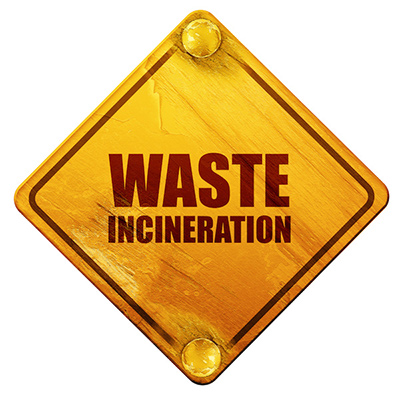A recent report released by consultancy Eunomia has created some controversy with regard to the building of waste incinerators versus Britain’s recycling targets.
According to the report, the increase in incinerator building may lead to the targets set by the UK to recycle more waste becoming difficult to meet. Waste will be needed to feed the new incinerators being constructed and there is a possibility this could lead to a reduction in Britain’s stated ambition for more waste to be recycled, turning Environment Secretary Michael Gove’s aspirations for a “green Brexit” into a farce.
The quantity of residual waste in the UK has decreased from around 30 million tonnes a year to about 26 million tonnes a year, due partly to increased recycling and partly to reduced commercial waste. However despite this progress, the UK has also increased capacity to burn waste left over after recycled more than twofold. The capacity to burn now stands at around 13.5 million tonnes, whereas less than a decade ago capacity to burn was around 6.3 million tonnes.
Eunomia says that building more incinerators while waste is reducing seems to contradict the UK’s stated ambition to reuse or recycle as much waste as possible, with Dominic Hogg of Eunomia accusing the government of withdrawing from policy regarding waste and resources over the past 7 years. He says that the rate of improvement in recycling has slowed down as a result and has gone into reverse in England.
“The most significant changes in recent years have been the switch from landfilling of waste to incinerating it,” he goes on to say. “This reflects a complete absence of ambition, and gives rise to costs that are not justified by the benefits.”
Impact of the findings
The Eunomia report believes that the excess of residual waste treatment facilities could have the potential to undermine resource efficiency as well as incentive to handle waste in a more environmentally friendly way, stating “As residual waste availability decreases, facilities will compete more intensely to receive that waste. For waste that is not governed by pre-existing contractual arrangements, the price of treatment will increasingly move towards the marginal cost of providing the service. In other words, residual waste treatment gate fees would fall, which would directly affect the economics of recycling.”
The report goes on to say that if all projected capacity projects were put into operation, recycling rates could fall below 50%.
However a spokesperson from The Department for Environment, Food and Rural Affairs maintains that great progress has been made in boosting recycling rates (including increasing the recycling of household waste from eleven percent to forty four percent from 2000 to 2015) and goes on to say that “We recognise the need for a mix of infrastructure and this will form part of a renewed strategy on waste and resources that looks ahead to opportunities outside the EU.”
The Eunomia report has also been criticised by the Environment Services Association (ESA). ESA’s executive director Jacob Hayler says that “Eunomia’s findings are flawed and have been contradicted by report after report from everyone else who’s looked at our residual waste treatment needs.
“Year after year these consultants have claimed that the UK was heading for overcapacity – its earlier reports suggested that we would already have reached overcapacity today – and it is galling that they continue to repeat the message when we are crying out for more investment in our industry. Their abilities to overstate available capacity and under-predict residual waste arisings are astounding.”
Hayler claimed that energy-from-waste capacity would end up more than 5 million tonnes short on capacity by 2030, and that the Government needed to realise that if it is “not to sleepwalk into a capacity crisis”.



